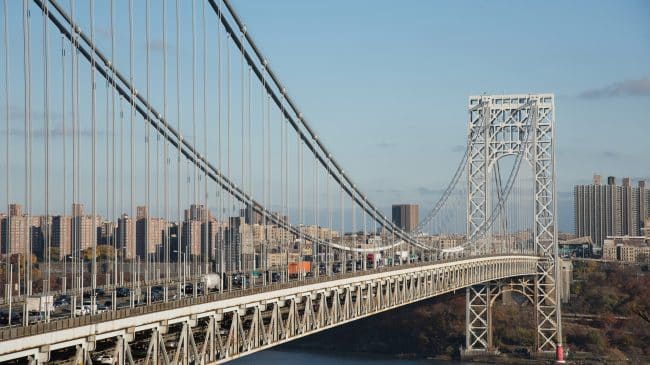A new Reason Foundation study finds asset recycling via long-term leases of America’s largest existing toll roads, bridges, airports, seaports, water and wastewater facilities, and university parking systems could generate $720 billion to $885 billion for state and local governments to spend on new infrastructure projects.
“With constrained public resources at every level of government, it will take novel ideas to address our continued infrastructure investment deficit. Asset recycling can help fix America’s serious infrastructure problems: aging, deteriorating facilities and a lack of funding for a large array of new infrastructure that would improve our quality of life,” said Robert Poole, director of transportation policy at Reason Foundation and author of the new report. “The basic idea calls for long-term leasing of existing facilities to well-qualified private partners and ‘recycling’ the lease proceeds into new, but currently unfunded infrastructure projects. The company pays most or all of the annual lease payments upfront, and the government uses that money on its unfunded infrastructure needs. Arguably, no other tool holds as much promise in addressing America’s infrastructure deficit.”
The Reason Foundation study finds leasing the 61 largest U.S. airports to private partners could generate between $250 billion and $360 billion for state and local governments in gross upfront lease payments. Under the leases, the private companies would spend an estimated $100 billion on capital improvements over the first five years, bringing the total private-sector investment in airports to between $350 billion and $460 billion. As examples, the study cites Baltimore/Washington International Thurgood Marshall Airport (BWI), which it finds could generate between $1.6 billion and $2.3 billion in net lease proceeds (after paying off existing bonds), and Louisville International Airport (SDF), which could be leased for over $600 million in net lease proceeds.
The 42 largest existing toll roads and bridges could generate $175 billion to $230 billion in gross upfront lease payments for state and local owners and would prompt another $10 billion in improvements during the first five years, according to the study. The George Washington Bridge connecting New York and New Jersey could yield between $10 billion and $17 billion in net lease payments, after debt repayment. Leasing the Illinois Tollway system could produce between $11 and $20 billion, and the Bay Area Toll Authority’s seven California-owned bridges could generate between $2 billion and $8 billion in net upfront lease payments.
“Existing government-owned toll roads and bridges are very attractive to private investors,” said Poole. “Global infrastructure funds have amassed hundreds of billions of dollars in equity that they are ready to invest in U.S. infrastructure. Public sector pension funds are also eager to invest in such infrastructure, to diversify their portfolios.”
The nation’s ports could be leased for up to $50 billion and would produce an estimated $9 billion in capital improvements over the first five years. The study concludes leasing the Port of Houston could yield net proceeds of between $1 billion and $1.7 billion and the Port of Tampa Bay could generate up to $272 million net, after debt payoff.
The report also estimates that $110 billion could be generated by leasing aging water and wastewater systems around the country. An additional estimated $60 billion worth of much-needed improvements would be undertaken by the private partners, bringing the total private sector investment value to around $170 billion. The Las Vegas Valley Water District lease could yield up to $729 million in net lease payments and the Mobile (AL) Area Water and Sewer could net up to $328 million.
In addition, the study estimates $60 billion in net economic value could be generated from state university parking recycling initiatives. For example, long-term parking leases could produce up to $276 million at the University of Georgia, $222 million at Georgia Tech, $192 million at the University of Mississippi, $180 million at Mississippi State University, and $108 million at Southern Mississippi. This money could be reinvested in higher education or infrastructure projects.
“Asset recycling can unlock billions in new capital that can be redirected into investments in new infrastructure,” Poole said. “In addition, it brings in a private partner that risks capital to rehabilitate and modernize the facility, with incentives to properly maintain the system for the full term of the long-term lease.”
Full Report
“Asset Recycling to Rebuild America’s Infrastructure”
Executive Summary
Full Study
Excerpt: Estimated Values Of Selected U.S. State and Local Infrastructure Assets
Reason Foundation’s Transportation Research and Analysis
Robert Poole’s Biography and Archive
About Reason Foundation
Reason Foundation is a nonprofit think tank dedicated to advancing free minds and free markets. Reason Foundation produces respected public policy research on a variety of issues and publishes the critically acclaimed Reason magazine and its website. For more information please visit Reason.org.
